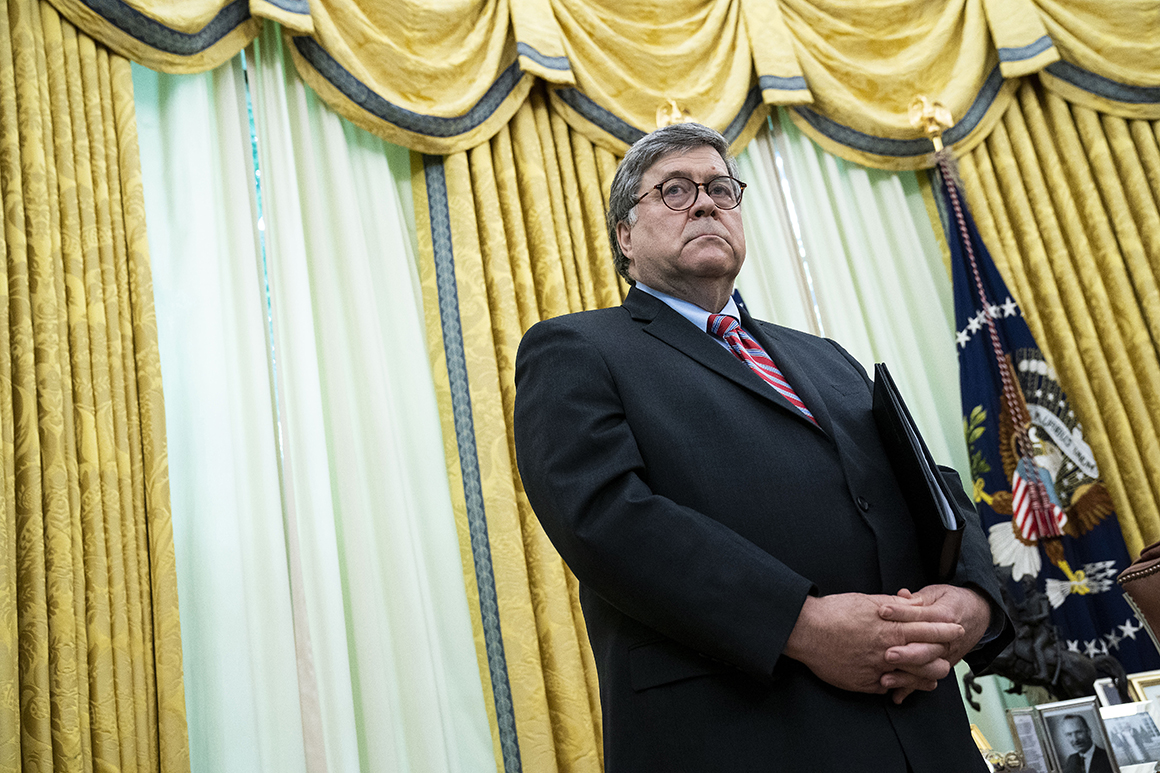House Democrats increasingly frustrated by the Trump administration for defying subpoenas are proposing legislation that would ratchet up their power to punish executive branch officials who reject their requests.
Rep. Ted Lieu (D-Calif.), and five other members of the House Judiciary Committee, unveiled a rule change Monday to formalize and expand Congress’ power of "inherent contempt" — its authority to unilaterally punish anyone who defies a subpoena for testimony or documents.
Though Congress has long had inherent contempt power, it has been in disuse since before World War II. This power, upheld by courts, has included the ability to levy fines and even jail witnesses who refuse to cooperate with congressional demands.
But such extreme measures have fallen out of favor over the years, as Congress has relied instead primarily on litigation to enforce its subpoenas and officials across government have acknowledged the unappetizing prospect of using force to impose its will. It’s even trickier when applied to a coequal branch of government, which may have its own privileges and protections to assert.
But calls for reviving inherent contempt have grown since Democrats reclaimed the House majority last year. Lawmakers on the Judiciary Committee, in particular, have fumed as Trump administration witnesses defied their requests and subpoenas for testimony and documents related to special counsel Robert Mueller’s investigation of Russian interference in the 2016 election. Lieu’s measure is cosponsored by Reps. Val Demings (D-Fla.), Jamie Raskin (D-Md.), Joe Neguse (D-Colo.), David Cicilline (D-R.I.) and Madeleine Dean (D-Pa.).
“We’ve seen unprecedented and illegal obstruction by the Trump administration to Congress where the administration has essentially directed witnesses not to show up to committees even after they have been given lawful congressional subpoenas,” Lieu said in an interview. “We need an enforcement mechanism.”
Lieu’s proposal only focuses on monetary penalties. It would establish a process for negotiations between Congress and executive branch officials when disputes arise over testimony and records. The measure would allow federal agencies to lodge objections to congressional requests, and it would permit the president to weigh in and assert any applicable privileges. The measure would also establish a process for holding recalcitrant officials in contempt, including hearings before the full House in which the subject would be permitted to present a defense and would face questions from lawmakers on the House floor.
If the House supports contempt after such a proceeding, it would then vote a second time to impose a financial penalty of up to $25,000. The penalty would be delayed for 20 days to allow for continued negotiations before subsequent penalties may be imposed up to an aggregate of $100,000. The measure would also bar taxpayer dollars from being used to cover any fines assessed through this mechanism.
Democrats say the measure is a crucial effort to formalize and reinvigorate Congress’ long-dormant powers.
Lieu said he is hopeful to implement it quickly but at the very least would like it in future Congress’ toolbox. He said the prospect that inherent contempt would be abused by lawmakers is slim.
“The way to prevent it from being abused is pretty simple: the witness just shows up,” Lieu said.
Inherent contempt became the subject of multiple court fights between the House and President Donald Trump, who has fought congressional subpoenas for his tax returns and financial information.
In those cases, House counsel Doug Letter emphasized that if courts refused to resolve the disputes, it would leave Congress with a slim list of blunt tools to confront an executive branch that’s stonewalling lawmakers. Those tools, which include impeachment, defunding power and the ability to block presidential nominations, would also include — as a last resort — invoking inherent contempt and deploying the House’s sergeant-at-arms to enforce the chamber’s will. Such a scene would be unpalatable and increase government dysfunction, Letter argued.
Lawmakers are revisiting the issue of inherent contempt in particular as they’ve renewed their complaints about Attorney General Bill Barr’s resistance to testifying before their panel.

Barr has yet to appear before the committee since taking his post in February 2019, despite repeated attempts to arrange testimony. Most recently, Barr has agreed to appear on July 28, amid mounting controversies facing his Justice Department, though some Democrats are still doubtful he’ll appear.
Committee Democrats have demanded answers about his role in directing a forceful response to peaceful protests across the street from the White House at Lafayette Park shortly before a nearby Trump photo opportunity. They’ve also questioned his effort to replace the top federal prosecutor in Manhattan with a handpicked successor who would have sway over multiple investigations into Trump’s associates and interests.
Lieu also cites the refusal of Defense Secretary Mark Esper and Joint Chiefs chairman Mark Milley to testify about their roles in the law enforcement and military response to the D.C. protests. The House has also been tied up in court since last summer fighting for testimony from former White House counsel Don McGahn, who ignored a congressional subpoena on the matter. And several witnesses called by the House during last fall’s impeachment proceedings also refused to appear, including then-chief of staff Mick Mulvaney and top White House national security lawyer John Eisenberg.
Source: politico.com
See more here: news365.stream






